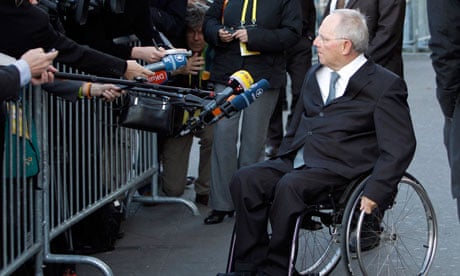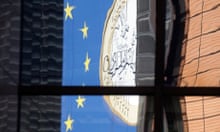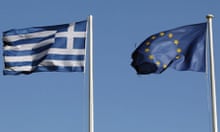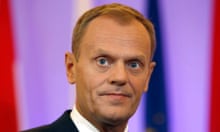Parliaments in three of the most hardline critics of Greece's second bailout have yet to approve the €130bn (£110bn) package.
Deputies in triple A-rated Germany, the Netherlands and Finland will have to give the final package their approval, with the finance ministry in Helsinki suggesting this may not now occur until 12 March – a week before Greece must repay €14.4bn of its €340bn debts.
The Bundestag is slated to debate the package on 27 February, though this may slip because of delays in completing its final details, and is certain to approve it despite louder and louder complaints about Greek "fecklessness".
"There's been a complete breakdown of trust between Germans and Greeks,"
one European diplomat said. "The atmosphere has got extremely nasty, with all this talk of sending in the controllers."
Among those most loudly condemning Greece and demanding it default and/or exit the euro have been members of Angela Merkel's ruling majority – especially from the eurosceptic Bavarian Christian Social Union wing.
But even the pro-European finance minister, Wolfgang Schäuble, has brought down the wrath of 11 million Greeks on his head by talking of their country as a "bottomless pit" – and prompting comments about latter-day colonialism.
Even so, the German chancellor, who has struggled domestically and externally to defend Greek membership of the euro, can count on opposition votes for a Bundestag majority.
"It will be a political embarrassment but she's getting used to that," another senior diplomat said after seeing Merkel forced to eject her federal president and back an opposition member as his successor. The social democrats (SPD) and Greens will ultimately vote for solidarity with the Greeks.
Similarly, in The Hague, Labour is expected to come to the rescue of the conservative-led minority government in the lower house which is due to vote next week on the bailout and is expected to approve.
The Dutch finance minister, Jan Kees de Jager, is the most vociferous Greek critic, demanding cast-iron guarantees that austerity and reform measures will be implemented before releasing a euro cent in aid.
The loudest protests come from the far-right Freedom Party of Geert Wilders, whose motto is: "Not a cent for the Greeks." The once euro-enthusiastic Dutch have grown increasingly sceptical in recent years and favour financial rigour above solidarity.
Finland has secured loan guarantees before taking part in this second bailout for stricken Greece – a token of its scepticism about Greek promises of reform and financial sustainability.
The (True) Finns and the Centre party, both in opposition, can muster 74 votes between them in the 200-seat parliament – not enough to unravel the rescue package. But the tide of opposition is swelling across a Europe increasingly divided on north-south lines.







